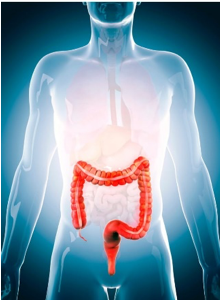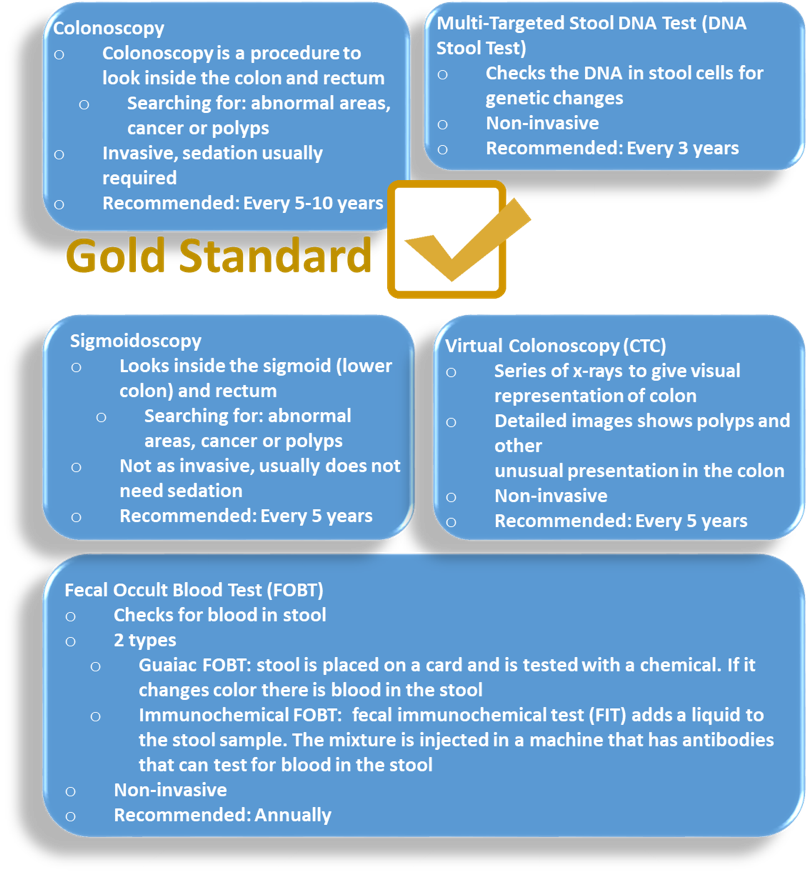March 23, 2021
 Did you know that colorectal cancer is the second leading cause of cancer death for men and women combined? The lifetime risk for developing colorectal cancer is 1 in 23 for men and 1 in 25 for women. Recommended screening is the best way to prevent colorectal cancer. Screening has contributed to a decline in the rates of colorectal cancer among those 65 years of age and older. However, there has been a 2% yearly increase in colorectal cancer cases among those 50 years of age and younger. Rates of colorectal cancer among adults between 20-39 years and 40-54 years has been increasing since the 1980’s. There are significant health disparities in the United States today with African-Americans having the highest incidence and mortality rates.
Did you know that colorectal cancer is the second leading cause of cancer death for men and women combined? The lifetime risk for developing colorectal cancer is 1 in 23 for men and 1 in 25 for women. Recommended screening is the best way to prevent colorectal cancer. Screening has contributed to a decline in the rates of colorectal cancer among those 65 years of age and older. However, there has been a 2% yearly increase in colorectal cancer cases among those 50 years of age and younger. Rates of colorectal cancer among adults between 20-39 years and 40-54 years has been increasing since the 1980’s. There are significant health disparities in the United States today with African-Americans having the highest incidence and mortality rates.
The American Cancer Society recommends a baseline screening for colorectal cancer at the age of 45 for those with an average risk of colorectal cancer. However, if you have specific genetic conditions, a family history of colorectal cancer or an inflammatory bowel disease, your doctor may recommend an earlier age of screening. The majority of colorectal cancer cases are sporadic (95%), meaning that they are not associated with any type of genetic condition. This highlights the importance of screening because colorectal cancer typically develops from a polyp that starts out as a harmless growth, but can turn into cancer over a period of 10-15 years.
Screening options:
There are various ways to screen for colorectal cancer, with the colonoscopy considered the gold standard for screening and preventing colorectal cancer. Other methods include fecal occult blood test (FOBT), DNA stool test, sigmoidoscopy and a virtual colonoscopy computed tomography colonography (CTC).
Ways that you can reduce your risk for colorectal cancer:
- Engaging in regular moderate to vigorous physical activity
- Avoiding processed lunch meats as well as a diet high in red meat
- Maintaining a healthy weight
- Smoke-free and avoiding alcohol
- Regular CRC screening can remove polyps before they develop into cancer
Recent research suggests that night shift work can also raise the risk of colorectal cancer, but more research is needed in this area.
Resources for Nutrition and Physical Activity
CDC Division of Nutrition, Physical Activity, and Obesity
CDC Nutrition Information and Recommendations
CDC Physical Activity Information and Recommendations
Sources:
American Cancer Society Prevention and Early Detection Guidelines
Colorectal Cancer Screening
Recommendations for Colorectal Cancer Screenings


